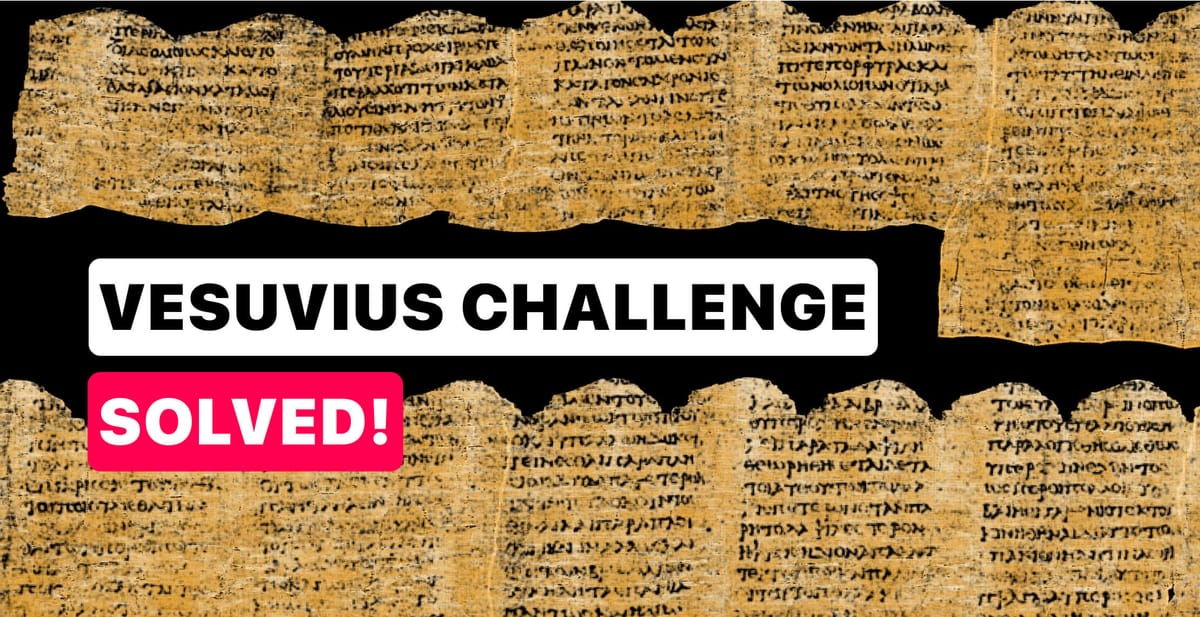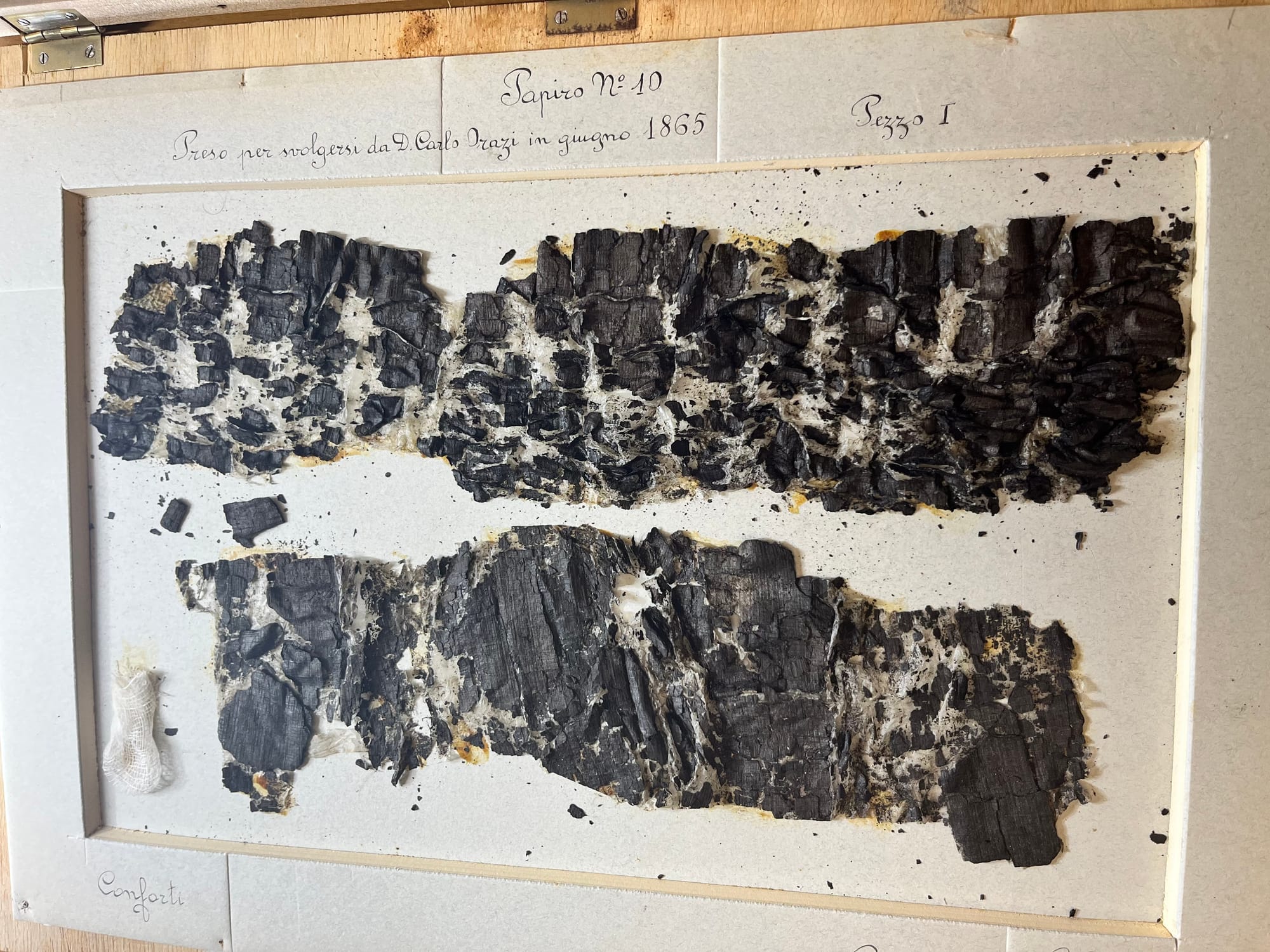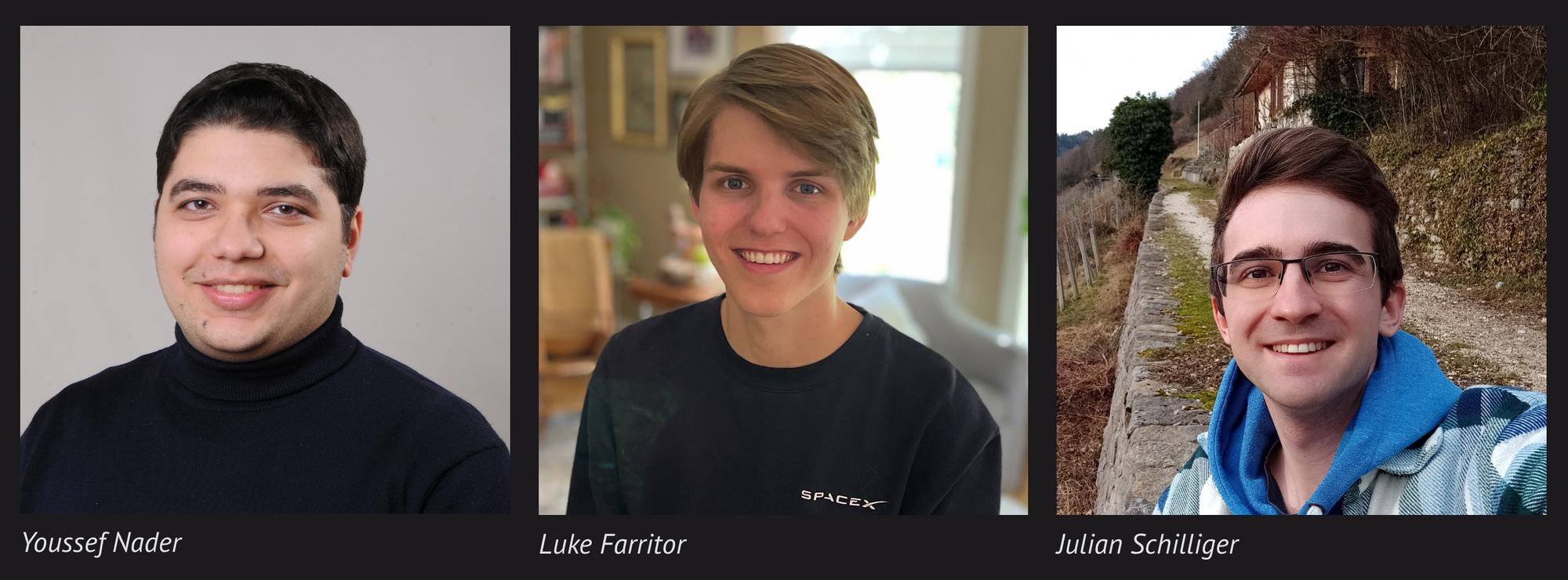
A 2,000-year mystery has moved one step closer to being solved. AI software developed by contestants in the Vesuvius Challenge has successfully transcribed passages from a burnt scroll found in the ruins of an ancient Roman villa in Herculaneum, Italy.
The scrolls were buried and charred by the eruption of Mount Vesuvius in 79 AD, which also devastated the nearby towns of Pompeii and Herculaneum. Over 800 carbonized scrolls were uncovered from a luxurious villa thought to have belonged to Julius Caesar's father-in-law. But attempts to read them have ended in failure for centuries, as the scrolls crumble at the slightest touch.

That changed last March when GitHub co-founder Nat Friedman and University of Kentucky computer science professor Dr. Brent Seales launched an ambitious contest. They offered over $1 million in prizes challenging coders and researchers worldwide to develop AI systems capable of virtually "unrolling" these fragile relics.
The results, revealed today, are groundbreaking. A team consisting of Youssef Nader, Luke Farritor and Julian Schilliger won the $700,000 grand prize for transcribing over 2,000 characters across 15 columns from one scroll. The passages contain musings on life's pleasures like music and food, leading experts to attribute them to Philodemus, an Epicurean philosopher living in the villa's library.

"Peering at and beginning to transcribe the first reasonably legible scans of this brand-new ancient book was an extraordinarily emotional experience," said classicist Dr. Richard Janko.
The contest marks a technical leap forward after two decades of effort by Dr. Seales' team to digitally unwrap the scrolls. His early virtual unscrolling attempts crashed against the scrolls' tangled complexity. In recent years, Seales turned to AI and machine learning to illuminate faded ink patterns, but readings remained fragmented.
The Vesuvius Challenge changed that by rallying fresh talent. Contestants developed novel techniques using 3D CT scan visualizations to flatten curled sheets of papyrus and highlight traces of lost writing. Dr. Seales calls the new ink detection capabilities "unparalleled."
Along with prize money, mandatory open sourcing ensures these methods benefit the wider research community. Significantly more of the first scroll is now readable, with the potential to reach 85% legibility. Further refinement of the AI techniques gives hope that more scrolls will divulge their long-hidden contents.
"This is the society from which the modern Western world is descended," said Robert Fowler, chair of the Herculaneum Society. "Some of these texts could completely rewrite the history of key periods of the ancient world."
While this initial victory reveals no lost classics (yet), it shows how AI may be tremendously beneficial in unsuspecting fields like archeology. Experts believe over 10,000 additional scrolls may lie buried on unexcavated lower floors. They yearn to know what forgotten knowledge these fragile papyri may yet unlock about the greatest thinkers of the time on subjects ranging from philosophy to science, law, religion and drama.
What does the scroll say?
From the little they have been able to decipher so far (about 5%), the scroll contains text about life's pleasures written by an Epicurean philosopher, likely Philodemus who is thought to have lived in the villa's library.
The passages discuss how the availability of pleasures like food and music affects how much we enjoy them. Here are a few snippets:
“as too in the case of food, we do not right away believe things that are scarce to be absolutely more pleasant than those which are abundant.”
In the closing section of the text the author takes a parting shot at his adversaries, who “have nothing to say about pleasure, either in general or in particular, when it is a question of definition.”
“… for we do [not] refrain from questioning some things, but understanding/remembering others. And may it be evident to us to say true things, as they might have often appeared evident!”
Scholars say the text seems to be part of a philosophical treatise focused on the nature of pleasure - a key tenet of Epicureanism. There are also mentions of a "Xenophantos" who may be a historical musician, but his identity requires further scholarship as the translations continue.
While not revelatory, it demonstrates AI can now extract substantial passages from these long unreadable scrolls.
Scholars might call it a philosophical treatise. But it seems familiar to us, and we can’t escape the feeling that the first text we’ve uncovered is a 2000-year-old blog post about how to enjoy life. [...] The questions he seems to discuss — life’s pleasures and what makes life worth living — are still on our minds today.
For 2024 the goal is to go from reading 5% of one scroll, to 90% of all four scrolls they have scanned. The next Grand Prize will be issued to the first team that is able to do this. "My goal is to unlock all of them," Friedman said with revived optimism. For now, AI has blown centuries of dust off one voice from the ancient world. But this may be just the first glimpse of a vast literary trove awaiting rediscovery.

